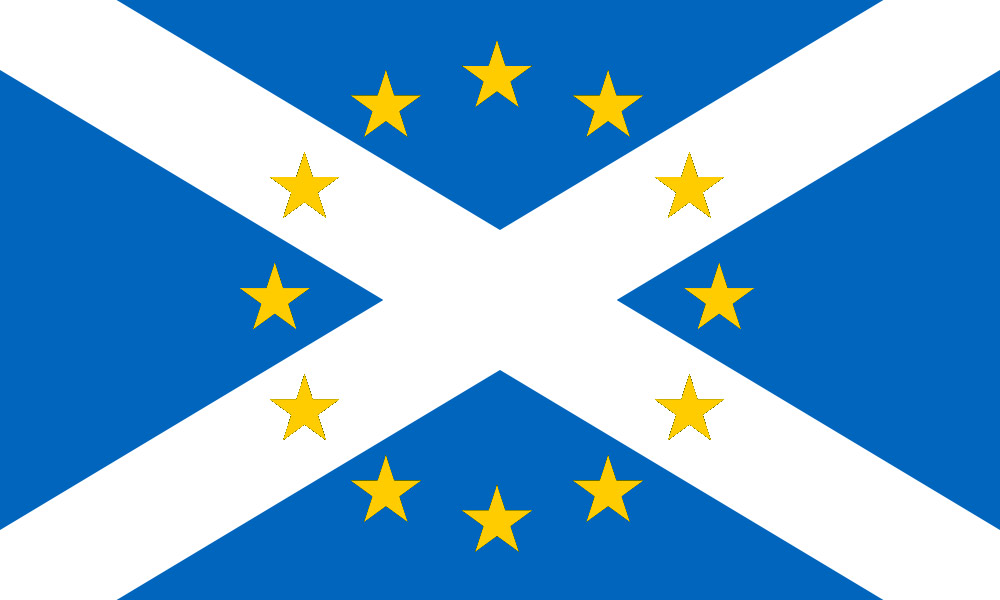Warning: Undefined array key "ssba_bar_buttons" in /usr/home/movgwifi/public_html/yesedinburghwest.info/wp-content/plugins/simple-share-buttons-adder/php/class-buttons.php on line 602
Warning: Undefined array key "ssba_bar_buttons" in /usr/home/movgwifi/public_html/yesedinburghwest.info/wp-content/plugins/simple-share-buttons-adder/php/class-buttons.php on line 602
Warning: Undefined array key "ssba_bar_buttons" in /usr/home/movgwifi/public_html/yesedinburghwest.info/wp-content/plugins/simple-share-buttons-adder/php/class-buttons.php on line 602
Why leave the UK and be run by the EU? by Bobby Hainey Nov 7, 2016 
An independent Scotland within the European Union (EU) would be sovereign, whereas Scotland within the UK is not. Voting for independence, even if it involves being in the EU, may not be an ideal solution but it is the one that guarantees the most power and sovereignty.
This will be a key question we need to answer if we are to win a second referendum as many Yes voters also voted to leave the EU. We need to answer this because those voters may have to choose between the EU and the UK in the future. They are people who want a Scotland that has the most control over its destiny.
Thankfully the answer is pretty simple. We know the difference between a supranational organisation (EU) and a unitary state (UK). Therefore, we understand that an independent Scotland within the EU would not be run by Brussels although it is true we are currently run by London.
An independent Scotland within the EU would be sovereign, whereas Scotland within the UK is not. Scotland is merely a region of the UK but would be a partner nation if independent within the EU.
An independent Scotland could choose to join the EU and in doing so we would cede some power in return for the benefits of membership. This is not giving away sovereignty, as sovereignty and power are two different things. In doing so we would gain access to the single market, EU funding and we would profit from the free movement of people and ideas. We would be free to have a vote to leave the EU if we wanted to. The EU does not have the power to disband the Scottish Government.
Contrast that to Scotland within the UK. The UK government can end the Scottish parliament if it sees fit. The UK government can take back any devolved power if it wants to. Scotland cannot choose to leave the UK as we need permission from the UK government in order to vote to do so.
Farming and Fishing will NOT default from the EU to Holyrood post-Brexit (and will be reliant on funding from Westminster). Post-independence we also would control other reserved competencies: Benefits and Social Security, Immigration, Defence, Foreign policy, Employment, Broadcasting, Trade and Industry, Nuclear energy, Oil, Coal, Gas and Electricity, Consumer rights, Data protection, and the Constitution.
Now it is fair to say that European law has an influence on all of these things. However, the bulk of EU law concerns bureaucratic regulations that are related to the common market. If you don’t think EU states have much power over laws then compare the Social Security systems, the Health Services and the Defence spending in Germany versus the UK. An independent Scotland within the EU would have far more scope to change.
So, if you like the idea of independence because you think Scotland should have more control but you don’t see the point of being ruled by Brussels; then voting for independence is a no brainer even if it involves being in the EU. It may not be an ideal solution but it is the one that guarantees the most power and sovereignty.
Of course, other options are available that may mean people don’t have to choose between Brussels and Westminster. One solution would be for an independent Scotland to join European Free Trade Association (EFTA) and the European Economic Area (EEA). This would mean not being ruled by Brussels or London. It would also mean we keep access to the single market while retaining control over fishing and farming. Surely this would be something all pro-independence voters could get behind regardless of what stance they took in the EU Referendum?
The cost of EU “membership” is £8.6 billion – not the £20 billion claimed by the Leave campaign. This is 1.4% of UK tax revenue (£609 bn). Scotland’s total public sector revenue is £54 bn (around 8% of the UK) and it sends 83% of that to the UK. The UK is one of 27 member nations of the EU, but has a veto and can give notice to leave at any time. Scotland has 59 MPs (9%) out of 650 in the UK with no veto and has to ask permission to leave. So which Union retains most sovereignty, and which keeps us in “political and economic captivity”? If we have to choose between the UK and the EU, the EU option gives Scotland more power, as well as sovereignty.
The USA declared its independence from UK because of taxation without representation – so could we.
Yes Edinburgh West has a website, Facebook, Twitter, National Yes Registry and a Library of topics on Scottish Politics, including Independence and Europe.



